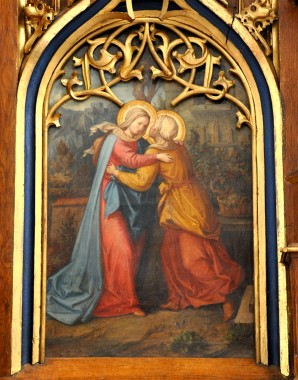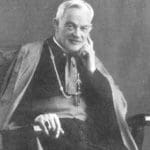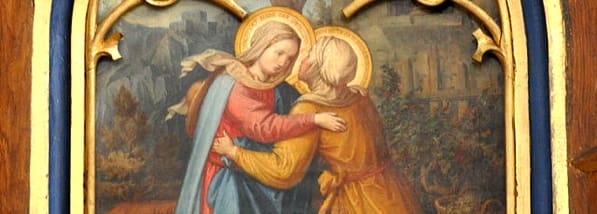THE MAGNIFICAT (Part II of IV)
“Because He hath regarded the humility of His handmaid, for behold from henceforth all generations shall call me blessed. For He that is mighty hath done great things to me, and holy is His name. And His mercy is from generation unto generation to them that fear him.” Luke 1:48-50
 1. By “humility” the original Greek here intends not the virtue of humility, which is in itself a great grace of God, and it usually ill becomes its possessor to proclaim it, but rather her actual lowliness, her poverty, her insignificance, her obscurity, her low and poor estate, her worthlessness as in her own eyes it appeared. She makes a contrast in this second sentence between herself and God–He the Lord, she the handmaiden; He the great, she the tiny; He the generous Lover who chooses her, she the chosen who can only make return by devotedness to her Lord.
1. By “humility” the original Greek here intends not the virtue of humility, which is in itself a great grace of God, and it usually ill becomes its possessor to proclaim it, but rather her actual lowliness, her poverty, her insignificance, her obscurity, her low and poor estate, her worthlessness as in her own eyes it appeared. She makes a contrast in this second sentence between herself and God–He the Lord, she the handmaiden; He the great, she the tiny; He the generous Lover who chooses her, she the chosen who can only make return by devotedness to her Lord.
2. “Behold from henceforth all generations shall call me Blessed.” The tiny maiden, who knows nothing better than her own littleness, glories in the thought that for all time her name will stand for a symbol of the great goodness of God to man, that this symbol will grow more and more significant, and that the more significant it grows, and the more she is honoured, so much the more will her Lord be glorified. As some beautiful picture or work of art by being honoured brings honour to its maker, and the more it is honoured the more is its maker glorified, so does Our Lady, the masterpiece of the hand of God in this creation, gather up in all generations ever more glory to God. The Angel Gabriel began the song of glory: “ Blessed art thou among women”; St. Elizabeth took it up: “Blessed art thou among women”; St. Peter must have known what was implied when he said: “Thou art Christ the Son of the living God”; and the heart of every living woman finds expression in that poor woman’s voice from the crowd: “Blessed is the womb that bore Thee, and the breasts that gave Thee suck.”
3. Having bowed down before her Lord, and having risen up in exultation and thanksgiving, Mary now sets herself to detail the goodness and greatness of her Lord. “He hath done great things to me,” she cries, for the Hebrew bears this rendering, “He Who is mighty, He Whose name is holy, He Whose mercy is from generation unto generation, to them that fear Him.” His power, His holiness, His mercy, are the three attributes she chooses: His power, in the wonderful fact and manner of the Incarnation; His holiness, in the person of Him Who has become incarnate, in the manner of the Incarnation, in its object, in the work which it will accomplish, in the fruits it will produce for earth and heaven; His mercy, because the Incarnation was the great work of restoration, of reconciliation, of atonement, of satisfaction, of infinite condescension and compassion.
Summary Meditation Points:
1. “He hath regarded the humility of His handmaid.” Mary contrasts her own material and actual littleness with the greatness of her Lord.
2. “From henceforth all generations shall call me blessed.” Mary dwells on the thought of the glory that is to come to her Lord because of all He has done for her.
3. She then extols the three great attributes of God displayed in the Incarnation: His mighty power, His holy name, His mercy.
 Editor’s Note: This meditation is from Archbishop Alban Goodier’s “The Prince of Peace” (1913).
Editor’s Note: This meditation is from Archbishop Alban Goodier’s “The Prince of Peace” (1913).
Art: Mariä Heimsuchung [Mary’s Visitation] Hochaltar der Pfarrkirche St. Nikolaus, Markdorf (Bodenseekreis) [High altar of the parish church of St. Nikolaus, Markdorf–Lake Constance District], Karl Reihing, 1871, CC, Wikimedia Commons. Archbishop Alban Goodier, S.J., www.stmaryscadoganstreet.co.uk, all rights reserved, used with permission.




